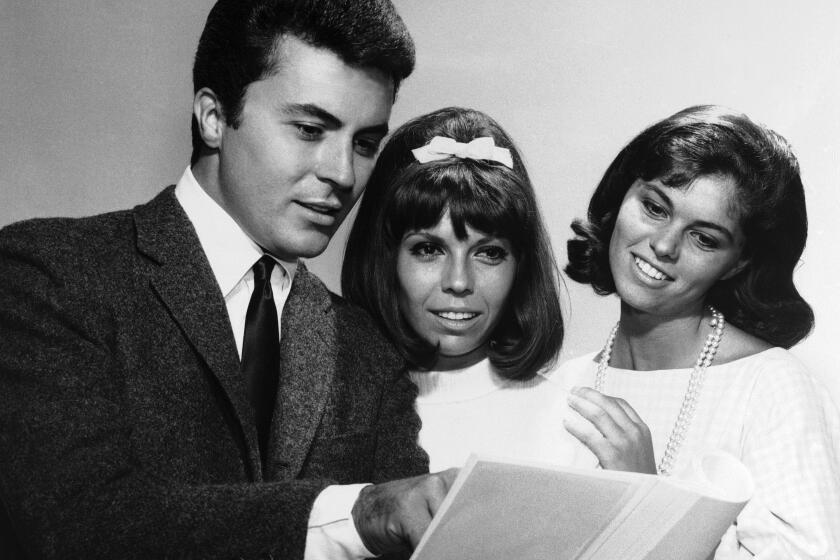‘Peepli (Live)’ filmmakers hold mirror up to India’s troubles
Mahatma Gandhi believed the heart of India was its villages and fields. In recent years, the divide between these communities and the glitzy “shining India” of big city shopping malls, rising economic growth and luxury cars has widened dramatically.
It’s this divide that “Peepli (Live),” a small-budget movie satire that will be India’s foreign language entry to the Academy Awards, tries to address, even as it questions whether India is losing its soul.
The film has attracted substantial buzz in India, even prompted some in its infamous bureaucracy to think twice about the shortcomings of their poverty programs and motivated a few of the well-heeled living in their gated communities in New Delhi and Mumbai to spare a thought for the little guys growing their food and building their apartments.
“Peepli (Live)” focuses on the plight of farmers, hardly an amusing topic but one the directors handle with humor and subtlety, great casting and strong dialogue, using a largely unknown cast with mostly theatrical backgrounds. The plot centers on two brothers, Natha (played by Omkar Das Manikpuri) and Budhia (Raghubir Yadav), living in a village named Peepli, whose ancestral land is threatened by crippling bank debts.
By chance, the pair hear about a government program that compensates the relatives of farmers who commit suicide. Before long, they’re thinking about taking their lives to save their families.
Soon the media catches wind of the story — “the first live suicide,” remarks one ratings-obsessed TV anchor — and the village is overrun by satellite vans, popcorn vendors, a Ferris wheel. They’re quickly joined by self-serving, uncaring politicians and bureaucrats.
Even though the Hindi-language film skewers the media, “Peepli (Live),” produced by actor Aamir Khan, a superstar here who has increasingly lent his name to less commercial projects, has drawn much of its success from intense coverage of its Khan association and its success at the Sundance Film Festival and similar events in Durban, South Africa, where it won the best first feature award, as well as in Berlin and in Melbourne, Australia.
“The film’s resonated with a lot of people in the media, even though it makes fun of them,” said co-director Mahmood Farooqui. “Unfortunately, the film message hasn’t had one iota of effect on their self-righteousness.”
The release also has made politicians and bureaucrats sit up. Prime Minister Manmohan Singh called it “a moral lesson both for politicians and for the gentlemen and ladies of the media.”
This film reflects an emerging, more “substantive” niche in Indian filmmaking, which is known outside the country mainly for its “Bollywood” musicals, says Rochona Majumdar, a professor with the University of Chicago.
Costing just $2.2 million to make, the film broke even with the sale of satellite television rights before it opened on more than 500 screens in India and nearly 200 abroad.
“Peepli (Live)” touches on the myopia of the newly comfortable in a nation that now boasts 69 billionaires (more than twice as many as 2008) but is still largely impoverished.
“A lot of people, living in the cities with the latest Nike shoes, just don’t seem to care,” said New York-based cultural commentator Aseem Chhabra. “Everything is not well in India.”
The nation’s farmer suicide crisis, which has become more pronounced over the last decade, is driven by bad policy, corruption and rapacious money lenders.
At their modest apartment in New Delhi, the film’s married co-directors, historian Farooqui and former journalist Anusha Rizvi, said they tried to start a conversation in India on some key social issues, including the urban-rural divide, migration and shortfalls in government programs.
“Jolting the Indian middle and upper class is a tall order,” said Farooqui, who’s from a distinguished intellectual family. “You’re talking about a rising group that is seeing more and more money each year and believes in its own destiny.”
While the film has been positively received in India and abroad, some criticize it for mirroring such earlier media satires as Ketan Mehta’s “Hero Hiralal” (1988), Sidney Lumet’s “Network” (1976) or Billy Wilder’s 1951 classic “Ace in the Hole.”
Others say the characters are a bit stereotypical — the heartless bureaucrat, the uncaring politician — and fail to evolve. “It painted a picture well, but it’s something we’ve seen before,” said Mumbai-based film critic Raja Sen.
Rizvi and Farooqui said every group represented in the movie — politicians, media, bureaucrats — has complained of an unfair portrayal. But they added that satire — or “anarchical absurdism,” as the couple prefers to call its genre — draws on stereotypes that aren’t meant to be three-dimensional. “None of these things are revolutionary,” Rizvi said. “There are probably five or seven plots in the world.”
While “Peepli’s” primary goal was to spark debate in India, it’s also struck a chord overseas, they said. After a screening at Sundance, a middle-aged man approached Rizvi and asked the name of the goat in the film. A bit taken aback, they inquired further and found the man was an American farmer who faced similar debt problems and liked the film so much he wanted to give his goat the same name.
mark.magnier@latimes.com
Anshul Rana of The Times’ New Delhi bureau contributed to this report.
More to Read
Only good movies
Get the Indie Focus newsletter, Mark Olsen's weekly guide to the world of cinema.
You may occasionally receive promotional content from the Los Angeles Times.









